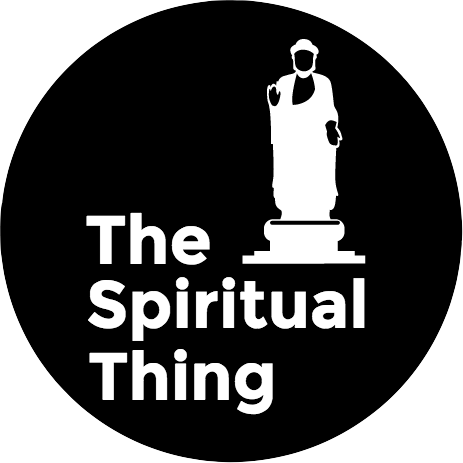In the world of fitness, exercise and nutrition often take center stage. However, there’s another critical component that can significantly influence your fitness progress: sleep. Understanding the role of sleep in fitness can help you achieve your goals more effectively. Let’s dive into how sleep affects fitness, why it’s so important, and the 10 benefits of sleep for exercise recovery and overall performance.
What is the Relationship Between Sleep and Fitness?
Sleep and fitness are intimately connected. During sleep, your body undergoes vital processes that repair and strengthen muscles, consolidate memories, and regulate hormones. These functions are essential for anyone looking to improve their physical fitness. Without adequate sleep, even the best training and nutrition plans can fall short.
The Impact of Sleep on Your Fitness Progress and Performance
The impact of sleep on fitness progress and performance cannot be overstated. Here’s how sleep influences fitness:
1. Muscle Recovery and Growth
During deep sleep stages, the body produces growth hormone, which is crucial for muscle repair and growth. Sleep deprivation can hinder this process, leading to slower recovery times and reduced muscle mass.
Example:
Think of your body as a smartphone. Training and nutrition are like using apps—they drain the battery. Sleep is like plugging the phone into a charger. Without enough charge (sleep), your phone (body) won’t function optimally.
2. Energy Restoration
Quality sleep replenishes glycogen stores, which are the primary energy source for high-intensity workouts. Lack of sleep can deplete these stores, making you feel fatigued and less capable of performing well during exercise.
3. Mental Focus and Coordination
Adequate sleep enhances cognitive function, improving focus, decision-making, and coordination. These mental aspects are crucial for performing exercises correctly and avoiding injuries.
4. Hormonal Balance
Sleep regulates hormones such as cortisol, insulin, and leptin, which affect muscle building, fat storage, and appetite. Imbalances can lead to weight gain, muscle loss, and decreased workout performance.
Why Sleep is So Important for Your Fitness Goals
Understanding why sleep is so important for your fitness goals involves recognizing the myriad ways sleep benefits your body and mind. Here are 10 specific benefits:
1. Enhanced Muscle Recovery
Sleep accelerates muscle repair by increasing blood flow to muscles and promoting the synthesis of proteins necessary for muscle growth.
2. Improved Athletic Performance
Studies have shown that athletes who get sufficient sleep have better reaction times, speed, and overall performance compared to those who are sleep-deprived.
3. Increased Motivation
Lack of sleep can lead to decreased motivation, making it harder to stick to your workout routine. Adequate rest, on the other hand, keeps you motivated and ready to tackle your fitness goals.
4. Better Endurance
Sleep improves cardiovascular health and endurance by allowing the heart and blood vessels to heal and recover from the stress of exercise.
5. Enhanced Metabolism
Quality sleep regulates metabolism and supports weight loss by balancing hunger hormones like ghrelin and leptin.
Example:
Imagine your body as a factory. During sleep, the factory undergoes maintenance to ensure all machines run smoothly. Without this maintenance, the factory (your metabolism) won’t produce efficiently, leading to slower metabolism and weight gain.
6. Reduced Risk of Injury
Adequate sleep improves reaction times and coordination, reducing the risk of accidents and injuries during workouts.
7. Stronger Immune System
Sleep bolsters the immune system, helping you recover faster from illnesses and reducing the risk of getting sick, which can derail your fitness routine.
8. Stress Reduction
Sleep reduces stress by lowering cortisol levels, a stress hormone that can lead to muscle breakdown and fat storage when elevated.
9. Better Mood
Quality sleep enhances mood by balancing neurotransmitters in the brain, making you more likely to enjoy your workouts and stay committed to your fitness goals.
10. Improved Mental Clarity
Sleep boosts cognitive functions such as memory and learning, which can help you master new exercises and workout routines more efficiently.
How Does Sleep Influence Fitness?
Sleep influences fitness in multiple ways, affecting both physical and mental aspects of your health. Here’s a closer look:
Physical Benefits:
- Muscle Repair: Sleep is when most muscle repair occurs, aided by the production of growth hormones.
- Energy Restoration: During sleep, the body restores glycogen levels, crucial for energy during workouts.
- Hormonal Balance: Sleep helps regulate hormones that control muscle growth, fat storage, and appetite.
Mental Benefits:
- Cognitive Function: Adequate sleep improves focus, memory, and decision-making skills, all essential for effective training.
- Motivation: Proper rest boosts mood and motivation, helping you stay committed to your fitness regimen.
- Stress Management: Sleep reduces stress and anxiety, which can negatively impact workout performance and recovery.
The Role of Sleep in Physical Recovery
Physical recovery is a critical aspect of fitness that sleep directly influences. Here’s how:
1. Muscle Repair
Deep sleep stages are when the body repairs and builds muscle tissue, essential for recovery after intense workouts.
2. Inflammation Reduction
Sleep helps reduce inflammation in the body, which can result from strenuous exercise. Lower inflammation means quicker recovery and less soreness.
3. Tissue Growth
Growth hormone, released during sleep, promotes tissue growth and muscle repair, aiding in recovery and strength gains.
Example:
Consider sleep as the repair shop for your body. After a day of hard work, your muscles and tissues are worn out and need repair. Sleep provides the environment for this repair to take place efficiently.
10 Benefits of Sleep for Exercise Recovery
- Muscle Repair: Accelerates the healing process of muscle fibers damaged during exercise.
- Glycogen Restoration: Replenishes energy stores depleted during physical activity.
- Reduced Inflammation: Decreases muscle and joint inflammation, promoting faster recovery.
- Injury Prevention: Enhances coordination and reaction times, reducing the risk of injury.
- Pain Reduction: Helps manage pain by reducing sensitivity and promoting healing.
- Improved Performance: Increases overall athletic performance and endurance.
- Stress Relief: Lowers stress levels, which can impair recovery and performance.
- Immune Support: Strengthens the immune system, aiding in recovery and preventing illness.
- Mental Recovery: Restores cognitive functions, improving focus and decision-making.
- Hormonal Balance: Regulates hormones critical for recovery, such as growth hormone and cortisol.
How to Optimize Your Sleep for Better Fitness
To reap the full benefits of sleep for your fitness goals, follow these tips:
1. Establish a Routine
Go to bed and wake up at the same time every day to regulate your body’s internal clock.
2. Create a Sleep-Friendly Environment
Ensure your bedroom is dark, quiet, and cool. Invest in a comfortable mattress and pillows.
3. Limit Screen Time
Avoid screens at least an hour before bed to reduce blue light exposure, which can interfere with sleep.
4. Mind Your Diet
Avoid heavy meals, caffeine, and alcohol close to bedtime. These can disrupt your sleep patterns.
5. Exercise Regularly
Engage in regular physical activity, but try to finish exercising at least a few hours before bedtime.
Example:
Think of your body as a high-performance car. Just like a car needs regular maintenance and high-quality fuel to run smoothly, your body needs a regular sleep schedule and a sleep-friendly environment to perform at its best.
Conclusion
The role of sleep in fitness is profound and multifaceted. From muscle recovery and energy restoration to mental clarity and hormonal balance, sleep impacts every aspect of your fitness journey. By prioritizing sleep and understanding its importance, you can enhance your exercise performance, reduce the risk of injury, and achieve your fitness goals more efficiently.
Remember, sleep is not just a passive state but an active process that is crucial for physical recovery and overall health. Make sleep a priority in your fitness regimen, and you’ll see the benefits reflected in your performance and progress.

